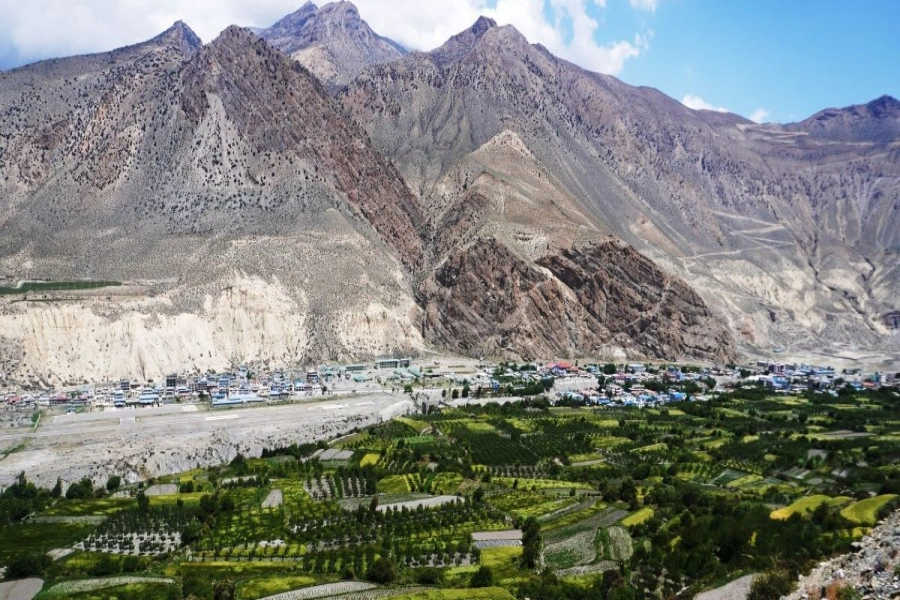KATHMANDU, Nov 23: It has been a decade since Nepal entered into the formal peace process with the signing of Comprehensive Peace Accord in November 2006. The CPA had not only formally ended the decade-long armed insurgency afflicting the country, but also paved a solid way for peace, development and prosperity.
With the passage of 10 years now, it is pertinent enough to mull how Nepal has fared on peace process and its progression towards more functional and inclusive democracy.
Counting the achievements, integration of rebel Maoist fighters into the Nepal Army, two elections of the constituent assembly, and promulgation of constitution in 2015 are the most significant. However, have people realized the peace they had aspired after the rebel Maoist party laid down the arms? It is still a burning question.
It was not unusual that we Nepalis placed unprecedented hope on the political parties after the signing of the CPA. Similar hope piled on then rebellion party Maoist during the first election of the Constituent Assembly, which however failed to bring constitution.
Let’s live in peace and embrace diversity

Needless to say, the dissolution of the first CA was not only the huge loss of money and waste of time but it also mounted dejection among the people (voters) thereby eroding trust on the political parties.
The second election of the Constituent Assembly brought the constitution, but the dissatisfactions are rife on it before it goes to full implementation. The political parties especially the region-centric from the southern plains have emerged so aggressive that they are warning of barring the activities on implementing federalism and the constitution.
The ruling political parties- CPN (Maoist Centre) and the Nepali Congress- are making utmost efforts to amend the constitution in the name of ensuring broader acceptability, while the major opposition, CPN-UML, is adamant on not letting any change in the national charter. The UML is smelling a rat, arguing the amendment would jeopardize national interest. Thus eludes consensus. It is not sure how long this difference goes on inviting conflict.
Are there not anything worth mentioning that Nepali are to witness peaceful days with change in system and economic prosperity? Is mere political development enough to ensure peace? Of course, the national incidents have shown that political developments do not ensure the peace to the people. Internalization of changed system- federalism- is a long process, as the preparation for these are occurring but slowly. Interestingly, federalism, frankly speaking, is publicly assured as a solution of many problems! Yes, in the legal and administrative fronts too, initiatives have been forwarded for the federal system to put in place as fixing high courts and judges for them.
Despite some achievements in the decade-long peace process, one of the most important parts to mention is transitional justice. How have we experienced to this regard? It is really worrying to state here that Member of the Truth and Reconciliation Commission (TRC), Madhabi Bhatta, was saying recently in a programme that the Commission was yet to begin the investigation on the people murdered and forcefully disappeared. She urged all to be watchful on the TRC's activities to ensure justice to the victims.
Similar regret came from Chairman of the Commission on Inquiry of Enforced Disappeared Persons, Lokendra Mallik. He said the CIEDP was desperately waiting for the laws to make the CIEDP more functional, to accelerate its activities. He however expressed commitment that the CIEDP would investigate into the complaints on murder and disappearance.
The political indifference towards forming these transitional justice mechanism was so blatant that these two commissions- TRC and CIEDP- were formed only after eight years of the signing of CPA. When do these mechanisms carry out their works? How do the conflict victims get relief and justice? Do mere elections ensure stability and peace?
An observation by political analyst Professor Lokraj Baral about election seems so pertinent now in Nepal, "Election mere does not ensure democracy. It's only electo-cracy." It suggests elections are not enough for sustainable democracy where people feel peace and country witnessed stability. But our political parties are now concentrating on elections with differences intact.
Needless to say, peace is not the mere absence of war/conflict. Nepal is not waging conflict but still in need of peace. The meaning of peace process rests on how political activities ensure ownership of constitution by all Nepali citizens, hold elections peacefully, reduce gap between different classes and most importantly cater justice to the conflict victims.







































